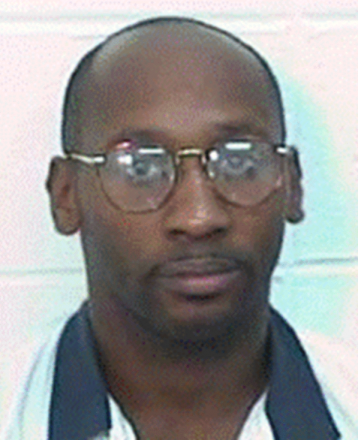Just before Troy Davis was executed last night for killing police officer Mark MacPhail more than 20 years ago, he professed his innocence one last time.
The Georgia man's controversial case had become a cause celebre in recent days, as a crowd of over 500 cried, hugged, prayed and held candles.
They represented hundreds of thousands of supporters worldwide who took up the anti-death penalty cause as Troy Davis' final days ticked away.
"I am innocent," Davis said Wednesday, minutes before his death.
"All I can ask ... is that you look deeper into this case so that you really can finally see the truth. I ask my family and friends to continue this fight."
Prosecutors and MacPhail's family were stoic but said that justice had finally been served, while dismissing questions regarding Davis' innocence.
Davis was scheduled to die at 7 p.m., but the hour came and went as the U.S. Supreme Court apparently weighed the case, halting the execution.
More than three hours later, the high court said it wouldn't intervene. The justices did not comment on the order rejecting Davis' request for a stay.
Davis' execution had been halted three times since 2007.
The U.S. Supreme Court even gave Davis an unusual opportunity to prove his innocence in a lower court last year. While the nation's top court didn't hear the case, they did set a tough standard for Davis to exonerate himself.
They ruled his attorneys must "clearly establish" Davis' innocence - a higher bar to meet than prosecutors having to prove guilt. After the hearing, a lower court judge ruled in prosecutors' favor, and the justices didn't take up the case.
After that setback, hundreds of thousands of people signed petitions on Davis' behalf and he amassed a number of prominent supporters.
Seven of nine key witnesses against him disputed all or parts of their testimony, but state and federal judges repeatedly ruled against him.
Three times on Wednesday alone, in fact.
Davis' supporters staged vigils in the U.S. and Europe in the last few days, declaring "I am Troy Davis" on signs, T-shirts and the Internet.
Some tried increasingly frenzied measures, urging prison workers to stay home and even posting a judge's phone number online, hoping people would press him to put a stop to the lethal injection of the man.
President Barack Obama deflected calls for him to get involved.
